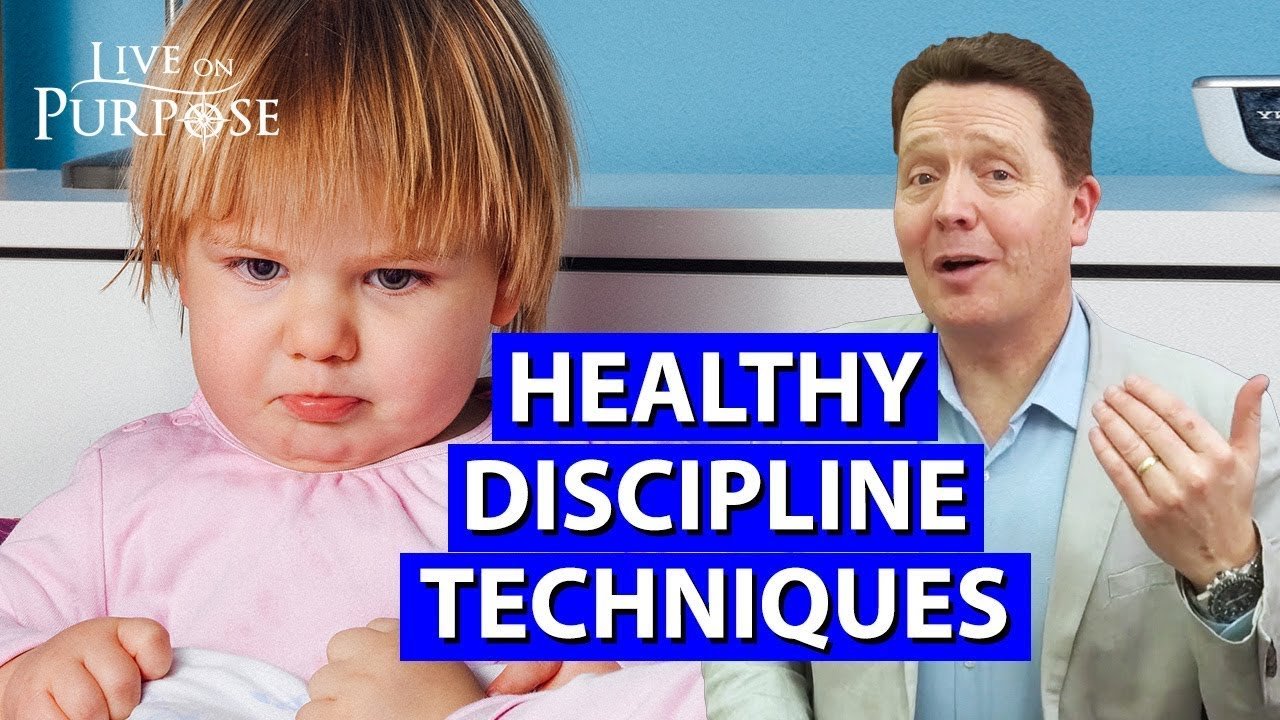“The Importance of Discipline in Children’s Development” is an article that highlights the significance of discipline in shaping children’s growth and happiness. It emphasizes the essential role of love and discipline in nurturing well-adjusted children. The article discusses the importance of separating emotions from discipline and focusing on thinking rather than fighting. It also emphasizes the use of consequences and empathy as teaching tools and the need for a balanced approach of control and maturity in parenting. The article concludes by mentioning the availability of the Parenting Power-Up course, which can provide tools and resources for positive parenting.
In a friendly tone, the aim of the article is to offer guidance and support to parents seeking healthy ways to discipline their children. By emphasizing the importance of love and discipline, the article aims to equip parents with strategies for effective parenting and decision-making. It encourages parents to focus on giving children choices and holding them accountable for their actions while balancing control and maturity. The article concludes by mentioning the Parenting Power-Up course as a resource for positive parenting.

The Importance of Discipline in Children’s Development
Discipline plays a crucial role in the well-being and development of children. It helps them grow into responsible, self-disciplined adults who can navigate the challenges of life successfully. When children are disciplined in a healthy and positive manner, they have a strong foundation for emotional regulation, critical thinking, and decision-making skills. In this article, we will explore the different aspects of discipline and how it contributes to a child’s overall development.
Discpline and Well-Being
Creating structure and routine in a child’s life is an essential part of discipline. Children thrive in environments where there are clear expectations and consistent rules. When they know what is expected of them and have a predictable routine, they feel secure and are more likely to exhibit positive behavior. Structure and routine also help children develop self-control, as they learn to follow rules and adhere to schedules.
Building responsibility is another key aspect of discipline that contributes to a child’s well-being. When children are given age-appropriate responsibilities and are held accountable for their actions, they develop a sense of competence and self-esteem. Being responsible for tasks such as cleaning up after themselves or completing homework teaches children valuable life skills and fosters a sense of independence.
Furthermore, discipline enhances a child’s self-esteem by promoting positive behavior and discouraging negative behavior. When children are consistently praised and rewarded for their achievements, they develop a sense of pride in their abilities. On the other hand, when inappropriate behavior is addressed with clear consequences, children learn the importance of making good choices and taking responsibility for their actions.
The Role of Love in Discipline
Discipline should always be coupled with love and affection. When children feel loved and connected to their parents or caregivers, they are more receptive to discipline and guidance. Establishing a loving connection with children is crucial for their overall well-being and sets the groundwork for effective discipline. Children who feel loved and supported are more likely to comply with rules and respond positively to discipline.
Building trust and security in the parent-child relationship is another significant aspect of discipline. Trust forms the foundation of discipline, as children need to trust that their parents have their best interests at heart. When children trust their parents, they are more likely to internalize the lessons taught through discipline, leading to long-term behavioral changes.
Additionally, showing unconditional love is essential in discipline. Children need to know that even though their behavior may be corrected or disciplined, they are still loved unconditionally. Communicating love and acceptance to children, even during moments of disciplining, helps them feel secure and valued.
The Role of Discipline in Emotional Regulation
Separating emotion from discipline is an important principle of effective parenting. When parents maintain a calm and composed demeanor while disciplining their children, they model emotional regulation. This teaches children that it is possible to address issues and solve problems without becoming overwhelmed by emotions. Separating emotion from discipline also empowers parents to approach discipline in a rational and objective manner, ensuring that decisions are made with the child’s best interests in mind.
Teaching emotional intelligence is another valuable aspect of discipline. Emotional intelligence involves recognizing, understanding, and managing one’s own emotions and the emotions of others. When children are disciplined in a way that addresses their emotions, they learn how to identify and express their feelings appropriately. This enables them to develop healthy coping mechanisms and establish meaningful relationships based on empathy and understanding.
Furthermore, discipline plays a significant role in helping children manage frustration and anger. By setting boundaries and consequences for inappropriate behavior, parents teach children how to regulate their emotions and express their feelings in a respectful manner. Discipline provides children with an opportunity to learn from their mistakes and develop healthier ways of dealing with difficult emotions.
The Importance of Thinking Skills
Discipline plays a critical role in developing thinking skills in children. When children are disciplined in a manner that encourages critical thinking, they learn to evaluate their actions and consider the consequences of their choices. This fosters a proactive approach to decision-making and helps children become more conscious of their behavior.
Encouraging problem-solving is another vital aspect of discipline. When children face disciplinary consequences, they are given the opportunity to reflect on their actions and find alternative solutions to avoid future mistakes. This promotes cognitive development and enhances problem-solving skills, enabling children to navigate challenges more effectively.
Promoting decision-making skills is yet another important aspect of discipline. By involving children in decision-making processes and allowing them to make choices within appropriate boundaries, parents empower children to take ownership of their actions. This teaches them the importance of weighing options, considering consequences, and making informed decisions.
Teaching through Consequences and Empathy
Discipline should be taught through a combination of consequences and empathy. Natural and logical consequences are effective tools for teaching children about the outcomes of their actions. Natural consequences occur naturally as a result of a child’s behavior. For example, if a child forgets their homework, they may receive a lower grade. Logical consequences, on the other hand, are consequences imposed by parents that are logically connected to the misbehavior. For instance, if a child refuses to clean their room, they may lose the privilege of watching TV.
In addition to consequences, empathy plays a crucial role in discipline. When parents put themselves in their children’s shoes and seek to understand their perspective, they can address misbehavior empathetically. This fosters a sense of understanding and connection, allowing parents to guide their children toward better choices.
Teaching empathy and compassion is also a significant aspect of discipline. By encouraging children to consider the feelings and needs of others, parents nurture their capacity for empathy. This teaches children to respect and empathize with others, promoting positive relationships and cooperation.
Balancing Control and Maturity in Parenting
The balance between control and maturity is a fundamental aspect of effective parenting and discipline. Setting boundaries and limits is essential for children’s growth and development. Boundaries provide a sense of security and structure, guiding children’s behavior and instilling a sense of responsibility. By setting clear expectations, parents help children understand what is acceptable and appropriate.
Encouraging independence is another important element of balanced parenting. As children grow, they need opportunities to develop autonomy and make decisions for themselves. This does not mean giving up control entirely but rather gradually transferring control to the child as they demonstrate maturity and responsibility.
Modeling respectful behavior is also key in finding the balance between control and maturity. When parents exhibit respectful behavior towards their children, they teach them how to interact with others in a considerate and compassionate manner. Children learn by observing their parents, and modeling respect sets a positive example for them to follow.
Giving Children Choices and Holding Them Accountable
Empowering children with choices is a powerful tool in discipline. Offering children the opportunity to make decisions within appropriate boundaries helps foster their sense of independence and individuality. When parents provide children with two choices, both of which are acceptable, children feel a sense of autonomy and are more likely to comply with the chosen option.
Promoting responsibility is another crucial aspect of discipline. Holding children accountable for their choices and actions teaches them about the consequences of their behavior. When children face the outcomes of their decisions, positive or negative, they learn the importance of taking responsibility for their actions and choices.
Teaching accountability goes hand in hand with giving children choices. When children understand that their decisions have consequences, they become more conscious of their choices and actions. This promotes a sense of personal responsibility and empowers children to make thoughtful decisions.
The Parenting Power-Up Course: Tools for Positive Parenting
For parents looking for additional guidance and resources on positive parenting, the Parenting Power-Up Course offers valuable tools and resources. This course provides an overview of positive parenting principles and strategies, helping parents navigate the challenges of discipline in a healthy and effective manner.
The course offers various resources, including videos and articles, which provide further insight into positive parenting techniques. Tools for effective discipline, such as setting boundaries and consequences, are explored in detail, ensuring that parents have the necessary tools to implement discipline effectively.
Additionally, the Parenting Power-Up Course provides support for challenging situations that parents may encounter. It offers guidance on how to address common disciplinary issues and provides strategies for handling difficult behavior. By enrolling in the course, parents can gain valuable knowledge and practical skills for positive parenting.
Conclusion
Discipline is a vital aspect of children’s development, contributing to their overall well-being and success. When discipline is coupled with love and guided by empathy, children have the opportunity to grow into responsible, self-disciplined individuals. By nurturing their thinking skills, teaching through consequences and empathy, and balancing control with maturity, parents can create an environment that fosters positive discipline and empowers children to make healthy choices. The Parenting Power-Up Course offers additional tools and resources for parents seeking to enhance their positive parenting skills and provide the best possible guidance and discipline for their children.

